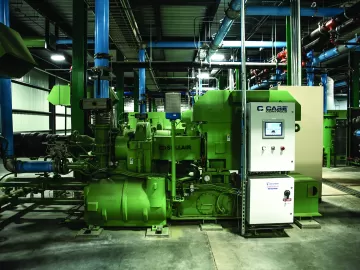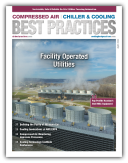PET Plants Using Boosters for High Pressure Air
The use of high performance boosters to raise low pressure air (100 psig) to high pressure air (500-600 psig) for blow molders is very power efficient and offers good operating performance and reliability when well applied.




